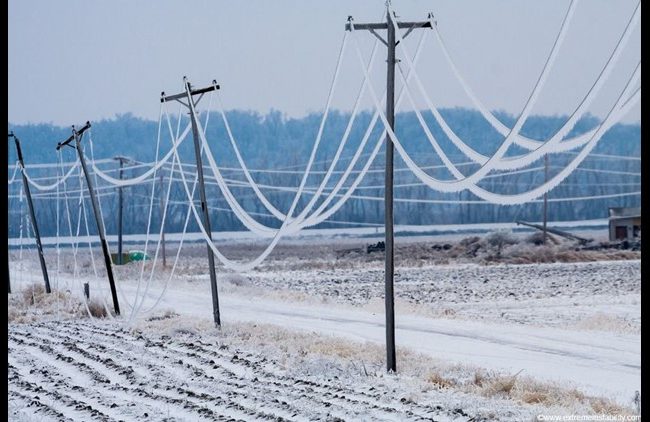“Being safe around electricity is a year-round need, but Indiana winters include many dangerous hazards, especially where power lines are concerned,” said Tommy Nance, Vice President of Operations at NineStar Connect. “Snow and ice often accumulate on power lines, and the added weight may cause them to snap off the power poles, or to cause the poles to break,” Nance explained. “That can bring power lines into contact with the ground, trees, homes, vehicles and other objects. If people or pets come in contact with a live power line, they can suffer serious injury or even death.”
During dangerous conditions, many residents may be confined to their homes for days at a time. That’s why it is important to have a plan in place, especially during these prolonged outages. To better prepare for a power outage, your electric co-op recommends members keep a storm preparedness kit fully stocked. The basic supplies in this kit should include:
- Bottled water
- Non-perishable food
- Emergency blankets
- First aid kit/medicine
- Flashlight
- Battery-operated or hand-crank radio
- Extra batteries
- Toiletries
Now that your family is prepared for a prolonged outage, what should you do if the lights do go out?
Keep warm air in and cool air out by not opening doors to unused rooms. Do not open doors to the outside unless necessary.
Food safety is also important when there is a prolonged outage. Keep refrigerator and freezer doors closed as much as possible and eat perishable food first. If you know a winter storm is coming, stock up on ice so you can keep things in coolers to keep them from going bad if an outage lasts longer than a day. Once the refrigerator reaches temperatures higher than 40 degrees Fahrenheit, foods can become unsafe to eat.
To protect homes’ electrical equipment during an outage, turn off and unplug all unnecessary electronics or appliances. This will keep equipment from being damaged by surges or spikes when the power returns.
Know how long your home healthcare supplies will last and have a backup plan. Plan for a safe alternative source such as a portable battery or generator if electricity is not available. Plan to get to a health care facility should your health worsen or if you are going to run out of necessary power.
Sources: Electrical Safety Authority, Popular Mechanics




